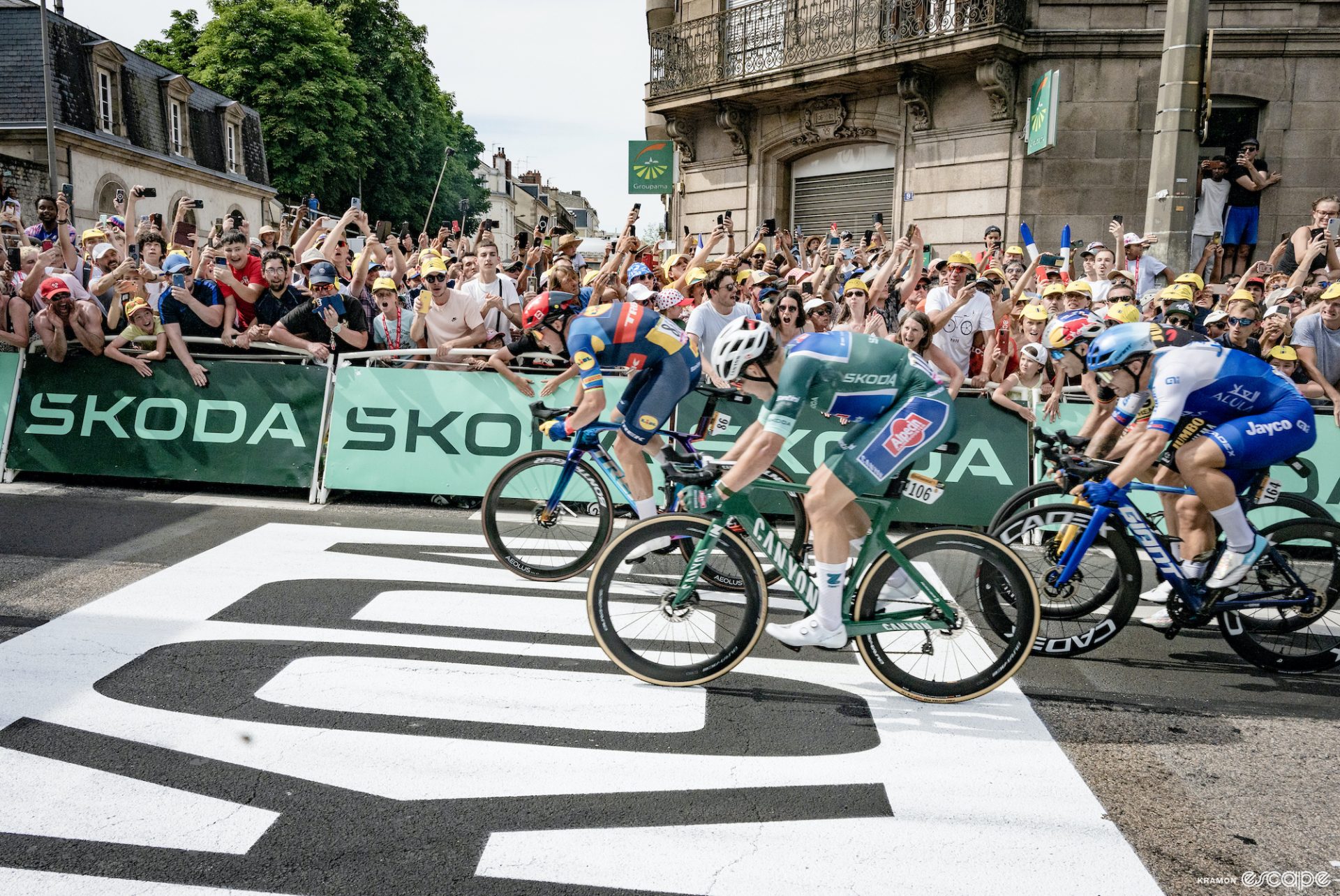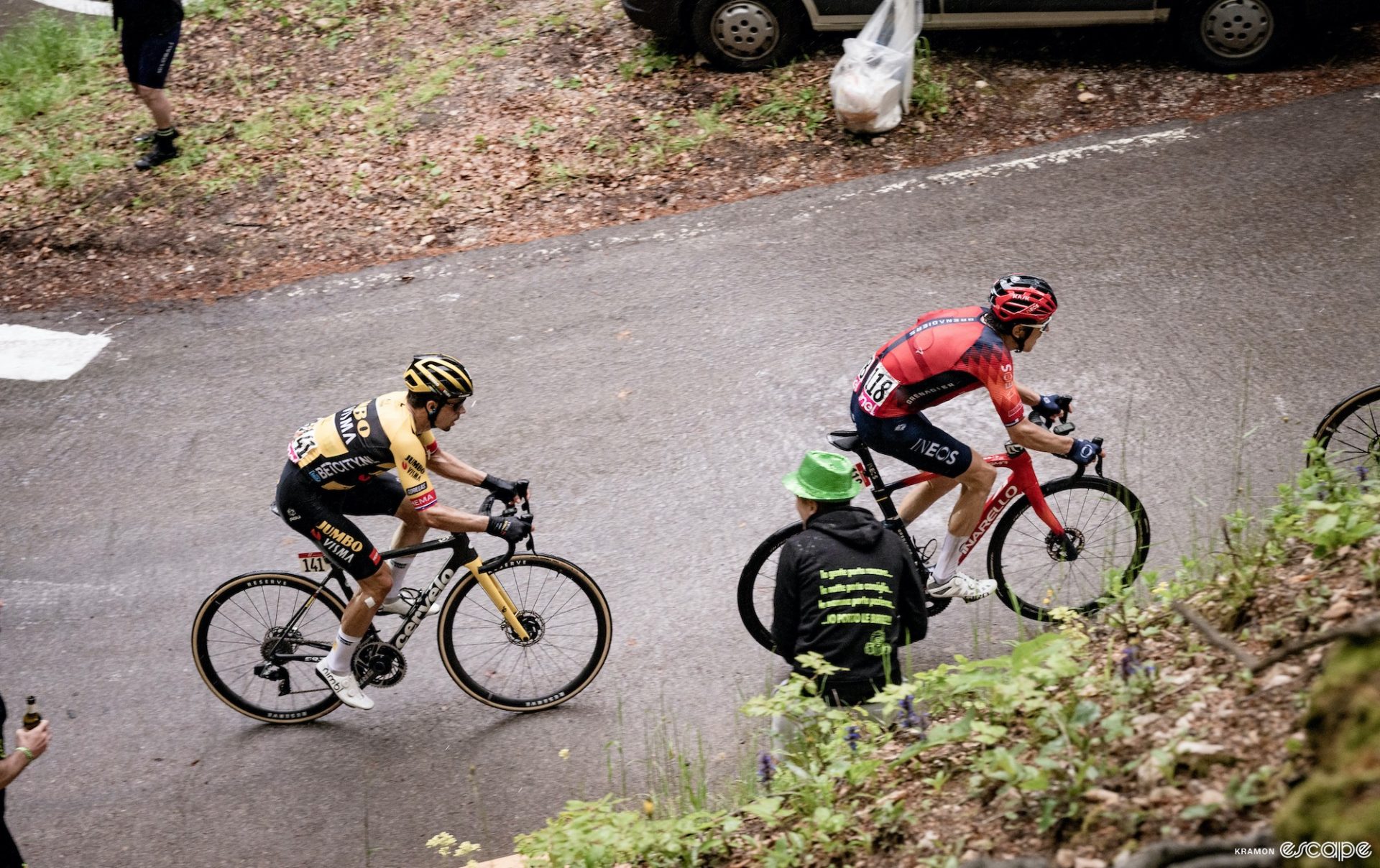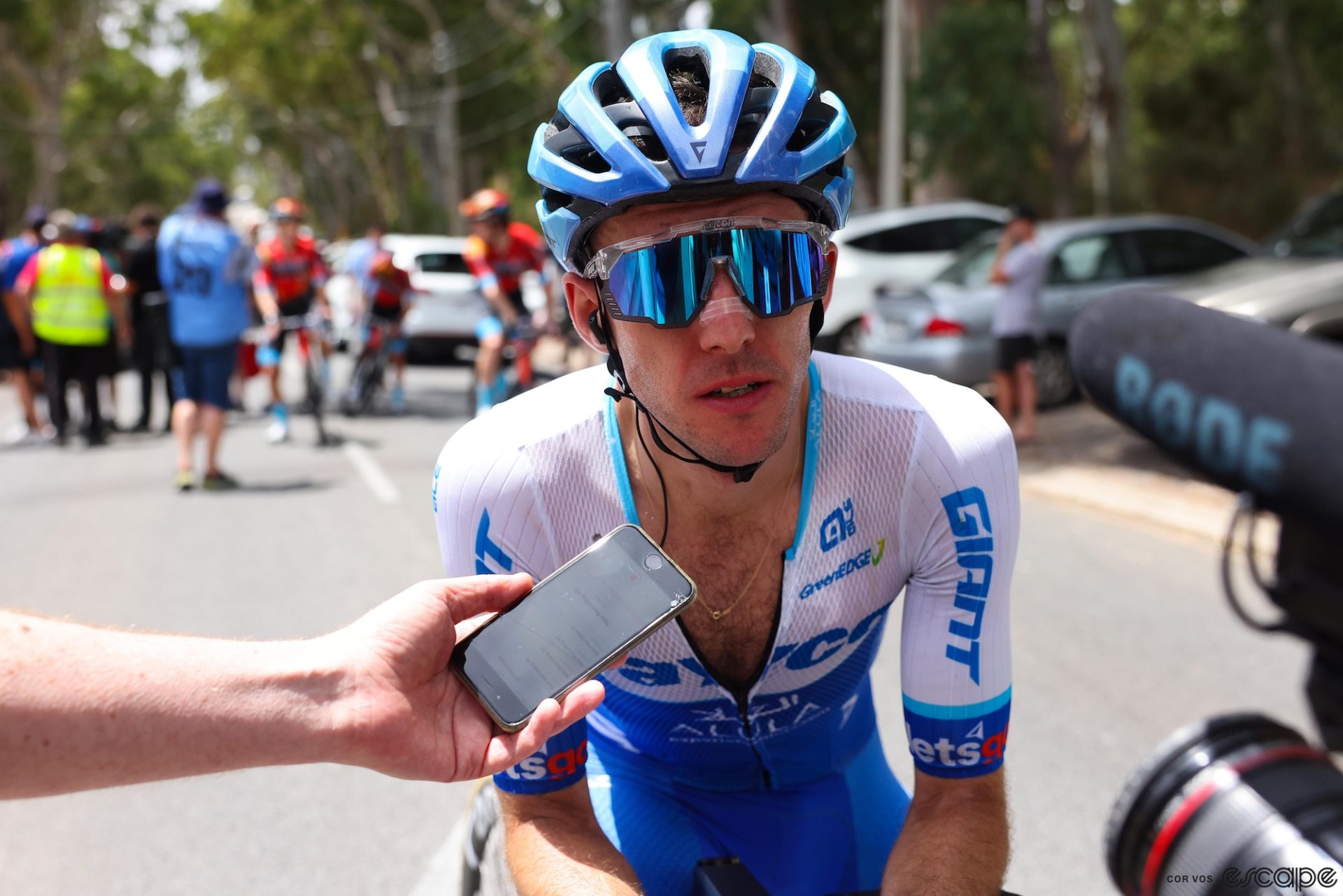Every sport under the sun has its aphorisms and its little language quirks, sayings that diehard fans get used to hearing even if they might sound a bit odd to everyone else.
For some reason, football (soccer) commentators love to use the word “pace” instead of “speed” to describe the velocity of a shot or a pass, even though that’s just plain strange. In American football, analysts love to shower praise on “high-motor” athletes to the point where it seems like the majority of players on the field fit the description – which would just make them all “normal-motor” athletes relative to each other, right?
The language of bike racing – which is increasingly English-first in an international sport – is no exception to this rule, and today, for no particular reason, we have decided to pay homage to some of our favorites, the sayings that we cycling lovers accept as being perfectly cromulent despite their weirdness to outsiders. For clarification’s sake, we’ll say that this is not meant to be a glossary of cycling-specific terms like “peloton,” “bidon,” or “gruppo compatto,” the essential jargon of the sport that can be easily defined or simply translated from another language.
Instead, it is an ode to the wacky and wonderful turns of phrase that make perfect sense to those of us with the context of having watched the sport for years. And there is no scientific definition of this either, by the way – we’re just making the rules up as we go along – but it made enough sense in our heads that we have decided to extoll the virtues of some specific sayings. Here are the cycling-isms that bring us the most joy …
“Day by day”
In addition to being an absolute banger from the musical Godspell, “day by day” is the preferred mantra of all cyclists who don’t want to commit to saying anything significant in an interview. “Are you targeting the GC?” we ask. “I’m just taking it day by day,” they say. Involved in a crash? Taking it day by day. First time in a given race? Day by … you know the drill. Unlike some of the others on this list, it is definitely a phrase you can hear outside of bike racing, but for some reason, it is absolutely ubiquitous in the pro peloton, and it crosses language lines too; Spanish-speaking riders will tell you they are just taking things día por día.
On the one hand, “day by day” is a safe way to field a question, practically a guarantee that no one will spin your response into something you don’t like. On the other hand, if you say it enough, it’s also practically a guarantee that the reporters will start to realize that you aren’t going to give them anything earth-shattering to write about, and they will give that platform to someone else (which may be the rider’s intent). In any case, it’s probably not going anywhere as a turn of phrase for riders everywhere, so we’ll just have to accept it.
“Chapeau!”
Sorry Italians, but “bravo” just doesn’t cut it for us cyclists. We prefer to tip our caps in a Frencher way. That’s where “chapeau” comes in. It is one of the most recognizable cycling-isms out there.
It literally means “hat” in French, and the best way to say it (read: the worst way) is to ironically mimic a tipping of the hat as you extoll someone for doing something impressive. According to a brief Internet search, English speakers beyond the bike racing world have been known to use this French-derived exclamation, but I’ve never personally heard it outside of cycling. Inside the bike racing world, on the other hand, it’s the undisputed champion of ways to show your approval for something, albeit one that might earn you an eye roll from the hipper crowd that has moved past such entry-level Francophonery.
“Bonification”
I’ve never heard anyone outside of the cycling world say this as if it were an English-language word, but it is perhaps the premier Sean Kelly-ism, and it deserves a spot on this list. There’s something pleasant about the fact that it is so clearly just a French word that we all nonetheless say and understand with an English spin on it.

It can also serve as a stand-in for some of the other great French words that we say like they are English words with the expectation that our cycling friends understand us, because there are plenty of those, and at the end of the day, our cycling friends do understand us, and isn’t that what matters? Maybe we all deserve a bonification for being so good at communicating.
“A result”
You’ll often hear riders tell you that they are “going for a result” or “hunting results” in this or that race, but what does that really mean? Technically, everyone who starts a race gets a result. Maybe they DNF or are time-cut, maybe they finish 137th, and maybe they win, but all of those results are … well … results. They all show up on the result sheet.
And yet, somewhere along the way, we decided to accept it when riders started telling us that they were “aiming for a result” as a vague stand-in for “hoping to do well,” because that result they are hoping for is obviously a good one. Then again, how do you define good? The better question is why would you want to define it when you could just be vague and hunt for results instead?
“It’s normal”
Somehow, somewhere, a rider got it into their head that “it’s normal” was the “normal” way of saying that there was nothing notable to report about whatever they were discussing. It does work – it makes enough sense that we nod when we hear it – but it’s something you’re practically guaranteed to hear at the Tour of Flanders while being quite a bit less common in the outside world.
This is a theme we’ll come back to. The international nature of the sport and English’s widespread use in it means that the majority of riders are speaking their second (or third!) language when they talk to us in English, and that brings with it a big collection of words and sayings that are someone’s best attempt to communicate with another person who doesn’t speak their language. It’s what makes the cycling lexicon so beautiful, and it also is what leads to acceptably understandable sayings that nonetheless sound kind of unusual. What’s even more fascinating, as we’ll see, is how some of these phrases have begun to creep into use by even native English speakers.

“In the final”
Full disclosure: I am a card-carrying member of the club that uses this phrase on the regular. It just makes sense … at least to those of us in the cycling world. When used as a noun, it typically refers to a championship game in a tournament, or an exam at the end of a term, but in cycling, a “final” is simply understood to be some nebulous stretch (handwaving gestures) at the end of a race. In that way, it’s a synonym of “finale,” but for some reason we just say “final.”
So what is that really counts as the final? That kind of depends.
Obviously the last few hundred meters is “the final,” but is the whole last kilometer? That probably counts in most races too, but not all of them? What about something that happens with three kilometers to go? Did it happen “in the final”? Maybe on a hard climbing stage. Or if a sprint team starts to organize into a train with five km to go, is all that the final?The point is that it is not an easy phrase to define, and that’s what makes it so darn useful to those of us who write race reports.
“The sensations are good”
Nothing encapsulates the wonderful weirdness of cycling quite like this sublime semi-mistranslation from the Romance languages that has become so common in the pro peloton that even native English speakers will say it without batting an eye. Chris Froome and Simon Yates are just a few of the many Anglophone riders who have joined the club that was almost certainly started by a French, Spanish, or Italian rider at some point in the mythical past.
The saying makes just enough sense that, apparently, nobody has ever asked “WTF?” when it has been said in an interview, but it is not idiomatic for any English speaker outside of our strange little corner of the universe.
Here’s the thing: “Sensation” in French, “sensación” in Spanish, and “sensazione” in Italian can mean “feeling” in a physical sense, and “sensation” is also an English word with a reasonable synonymous meaning, so it just makes sense that the Romance speakers would latch onto that cognate. But we don’t actually say “the sensations are good” in English when we mean “I feel good,” because “sensation” in English has a more nuanced meaning.
Most people use it literally to refer to the thing that our nerves send to our brains in a specific moment, or they use it figuratively to refer to a general outpouring of emotion. Most people don’t use it to say that their legs feel good after a long day of exercise. But we are not most people. We are cyclists, and our language is tinged with influences from the cultures of the cycling heartland. We might as well just embrace it.
If you asked me before I got into this sport how I felt about the use of this weird phrase, I might have been befuddled – but if you were to ask me how I feel about it now? I guess I’d just say the sensations are good.
Did we do a good job with this story?


